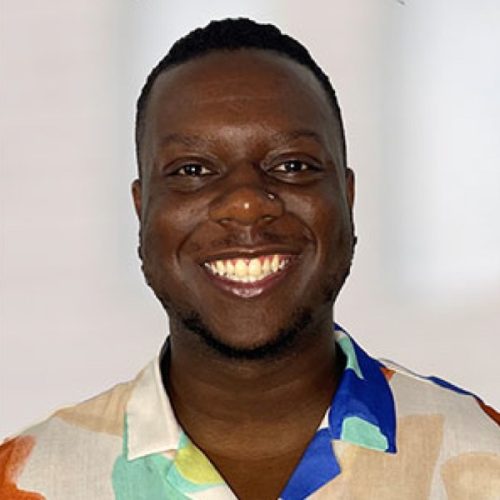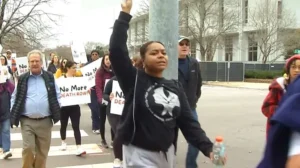By Joshua Levi Perrin
Young Black men, often caricatured and stereotyped, are restless about their legacy but committed to shaping their future more than any time in their lives.
So says a community development expert, a physician, and entrepreneur. All social justice activists, they are poised to be major players in shaping the future of this country. Standing at the intersection of potential and opportunity, they hold the power to drive social, economic, and political change aimed at transforming generations.
Yet, for many of their cohorts, this power feels distant—like something happening to them, not with them. Young Black men can actually be the draftsmen of a future that reflects their values, ambitions, and resilience.
Georgia-born Adrian Consonery Jr., 24, founder of the Lyfeline Initiative, dedicated to community development and vocational services, paints a vivid picture of the disconnect many Black men feel.
“A lot of us feel like collateral,” he reflects. “Like bystanders in a system we’re stuck in, instead of architects of the future we want to build. But we have more power than that. We just have to step up and use it.” For Consonery, the moment young Black men realize the weight their vote carries, they begin to seize the future as their own.
The stakes are high, especially in today’s political landscape, where policy decisions impact everything from criminal justice reform to economic opportunity. Local elections, in particular, play a critical role in shaping communities.
“Judges, sheriffs, even state attorneys—these people are elected,” says Marquis McKenzie, 24, of Orlando, Florida., CEO of The Dirt Master, a residential and commercial cleaning service. McKernzie is also active in the Florida Rights Restoration Coalition which helps to give formerly incarcerated people voting rights..
“When we vote, we decide who shapes the system,” McKenzie affirmed. “We have to be involved if we want fair treatment for those coming after us.”
McKenzie’s perspective is deeply personal. Stripped of his voting rights after incarceration, he discovered that voting wasn’t just about reclaiming his own voice. He became an active player in creating a path forward for others. McKenzie insists that advocating for voting rights is a continuation of the fight for justice and equality that has long been at the center of the Black experience in America.
“I know what it’s like to have your voice taken away,” he says, “but I also know what it feels like to get it back—and to make sure others get theirs back too.”
The ability to influence change is not just limited to those who have faced disenfranchisement. The opportunity to shift the narrative lies in the hands of all young Black men, especially those coming of age in an era defined by both challenge and possibility.
Kylar K. Wiltz, 28, of Washington, D.C., is a physician and Program Manager for Vote HBCU. He stresses that the decisions made today will have lasting consequences. “Politics touches everything—your paycheck, your rent, your healthcare. It’s all tied to who’s in office,” says Wiltz. “If you care about your money and your future, you need to care about voting.”
Wiltz, who engages with young voters through his work with Historically Black Colleges and Universities, emphasizes the importance of understanding the ripple effects of each election. “The policies being made today will affect us for years to come,” he explains. “When you vote, you’re not just voting for the present—you’re voting for your future and the future of your community.”
The future needs resonate with Consonery, McKenzie, and Wiltz. They view voting not as a fleeting act of civic duty but as a powerful tool for shaping the decades ahead.
The power of the vote extends far beyond the immediate; it influences generational shifts. “We’ve always been at the forefront of change,” Consonery reminds us. “From the Civil Rights Movement to Black Lives Matter, young Black men have led the charge. Voting is just the next step in that legacy.”
The legacy of Black men as change-makers is woven through the history of social movements in America. From marching for voting rights in Selma to organizing protests in Ferguson, Black men have consistently been on the front lines, demanding justice, equality, and the right to determine their own futures—more than an act every few years, voting is a tool that can shape policies, elect leaders, and hold systems accountable.
But beyond the historical context, the urgency for young Black men to engage in the political process is tied to the realities of today—from economic security to gun safety. GenZ and Millennial brothers are also defying stereotypes and taking a stand against sexism and misogyny, systemic racism and criminal justice reform.Each election cycle directly impacts the lives of Black men and their communities.
“We’re not just bystanders,” Wiltz says. “We’re more than a statistic. Our vote ensures our voices and our needs are heard—not just now, but for generations to come.”
The opportunity to transform the future is within reach, but it requires action. For too long, many young Black men have felt disconnected from a system that seemed designed to marginalize them.
Consonery, McKenzie, and Wiltz point out, the path to empowerment starts with participation. By casting their ballots, young Black men can not only reclaim their voices but also shape a future that reflects their visions and values.
Voting isn’t just about the present—it’s about building a foundation for the opportunities that will shape the decades ahead.
Joshua Levi Perrin is a writer for Unerased | Black Women Speak and senior communications manager for the Center for the Study of Social Policy.




